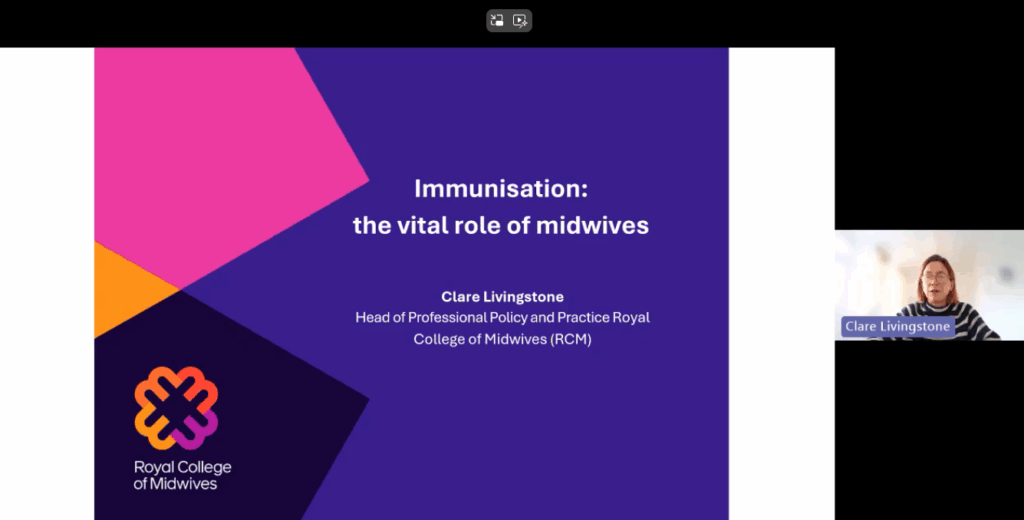The Royal College of Midwives (RCM) has announced its top 10 research priorities for midwifery and maternity care – identified in a thorough process working with the James Lind Alliance, and closely supported by a project Steering Group made up of midwives, midwifery students, maternity support workers (MSWs), women and birthing parents and their supporters.
The collaborative project brought together stakeholders – including midwives, maternity support workers, students, service users and partner organisations – to reach a consensus on the most pressing research needs facing the profession. The project was delivered using a Delphi-style approach, designed to gain a consensus through two surveys and an in-person workshop.
The priorities cover a broad range of areas, from induction of labour to the impact of psychological trauma and were revealed in a presentation at the RCM conference in Birmingham this week.
- What is required to create and implement culturally safe maternity care in the UK for women and birthing parents, and their babies, and staff from the global ethnic majority? What role does decolonisation of the midwifery curriculum and ongoing learning in clinical settings play in improving cultural competence and safety?
- What are the appropriate reasons for induction of labour? What are the short and long term maternal and baby outcomes associated with it? How should this be communicated to women and birthing parents and their informed consent gained?
- What are the important components of personalised maternity care to ensure informed choice and decision making and how should this care be provided?
- How does the culture within the maternity services, including racism, incivility and other negative behaviours among staff impact on midwives, maternity support workers and maternity care assistants and what can be done to address this?
- What factors mean that birth is becoming increasingly medicalised, and what are the long and short-term outcomes resulting from interventions? How does medicalisation impact on the choices that women and birthing parents can make and the clinical care that they receive?
- How can the causes and consequences of pre-existing psychological trauma during the perinatal period be better understood and prevented or the impact reduced? What role does trauma-informed care play in addressing it?
- How can postnatal care be prioritised and improved so that mothers and birthing parents and their babies receive high quality care that meets their individual needs?
- How can the maternity services improve bereavement care? How should the best available information be used by maternity services to improve the bereavement care experience for parents who suffer a loss in their current or previous pregnancies? What support and care provision should be available for families following a maternal death?
- How can midwifery continue to be an attractive career for potential applicants? How can midwifery students and qualified midwives be helped to stay in the profession in a way that provides a positive work environment and supports the provision of safe and compassionate care?
- What are the specific needs of neurodiverse individuals (including those undiagnosed) throughout their maternity care, and what knowledge, understanding and communication skills should maternity care professionals possess to provide safe and compassionate care.
Advocating for these priorities will be at the heart of delivering the RCM’s Research and Development Strategy for 2025-27, which was also launched at the Birmingham conference. The initiative represents the first time a research priority-setting exercise like this has been undertaken in the UK.
Dr. Jude Field and Jenny Cunningham, RCM research advisors and research prioritisation project leads, said in a statement: “This important project seeks to put the concerns and priorities of members, and the women and families in their care, front and centre of our forward planning. We hope that these priorities will be used to help shape research and inform policy, with the overall aim being to improve the outcomes and experiences of women, birthing parents, their families and the maternity workforce.
“The 10 priorities we have unveiled today focus on enhancing safety, quality and inclusivity in maternity care. There is also a strong emphasis on workplace wellbeing, retention and the creation of a compassionate and supportive maternity care environment. These research priorities aim to address key knowledge gaps to support midwives and MSWs to better meet the needs of those in their care, whether this is through better communication, understanding different needs, or improving care after trauma or loss.”
Dr. Sara Webb, RCM Head of Midwifery Information & Research, added: “We extend our thanks to everyone who participated in the process and encourage all interested parties – including researchers, policy makers and healthcare professionals – to support and build on this important work.”
ENDS


